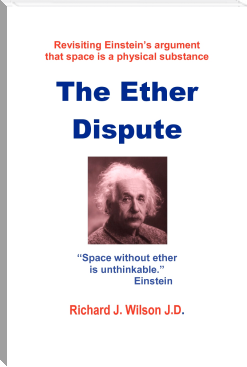author - "Richard J. Wilson JD"

In Gulliver’s Travels Captain Gulliver relates how the people of Lilliput were very tiny, hardly reaching his ankles, and how they were evenly divided into two political parties – the High Heels who strongly argued a soft boiled egg must always be opened on the pointed end – and the Low Heels who argued just as firmly that it should only be opened on the round end – and he told in exciting detail of the intrigues and infighting that ensued from this major political difference.
Now, in this book, based on a newly discovered manuscript in Gulliver’s own hand, we’re treated to an equally exciting eyewitness account of the little people’s quaint economy.

There’s an unresolved dispute over the physical nature of space. It occurs because of what Bacon called our “dull and deceptive human senses.” On one hand, space appears empty. This led biblical and modern cosmologists to conclude space is an “empty vacuum.”
But, when astrophysicists from Newton to Einstein studied space, they found it exhibits physical behaviors – for example, it physically carries light and heat from the sun to earth. This led the astrophysicists to conclude space is an invisible substance called “the ether.”
Since the Cold War, discussion of the conclusion of astrophysics has been quietly banned from establishment forums as a blasphemous product of “godless communism.” In this book, our author revisits the dispute, and argues it needs to be revived and resolved scientifically.

In Gulliver’s Travels Captain Gulliver relates how the people of Lilliput were very tiny, hardly reaching his ankles, and how they were evenly divided into two political parties – the High Heels who strongly argued a soft boiled egg must always be opened on the pointed end – and the Low Heels who argued just as firmly that it should only be opened on the round end – and he told in exciting detail of the intrigues and infighting that ensued from this major political difference.
Now, in this book, based on a newly discovered manuscript in Gulliver’s own hand, we’re treated to an equally exciting eyewitness account of the little people’s quaint economy.

There’s an unresolved dispute over the physical nature of space. It occurs because of what Bacon called our “dull and deceptive human senses.” On one hand, space appears empty. This led biblical and modern cosmologists to conclude space is an “empty vacuum.”
But, when astrophysicists from Newton to Einstein studied space, they found it exhibits physical behaviors – for example, it physically carries light and heat from the sun to earth. This led the astrophysicists to conclude space is an invisible substance called “the ether.”
Since the Cold War, discussion of the conclusion of astrophysics has been quietly banned from establishment forums as a blasphemous product of “godless communism.” In this book, our author revisits the dispute, and argues it needs to be revived and resolved scientifically.